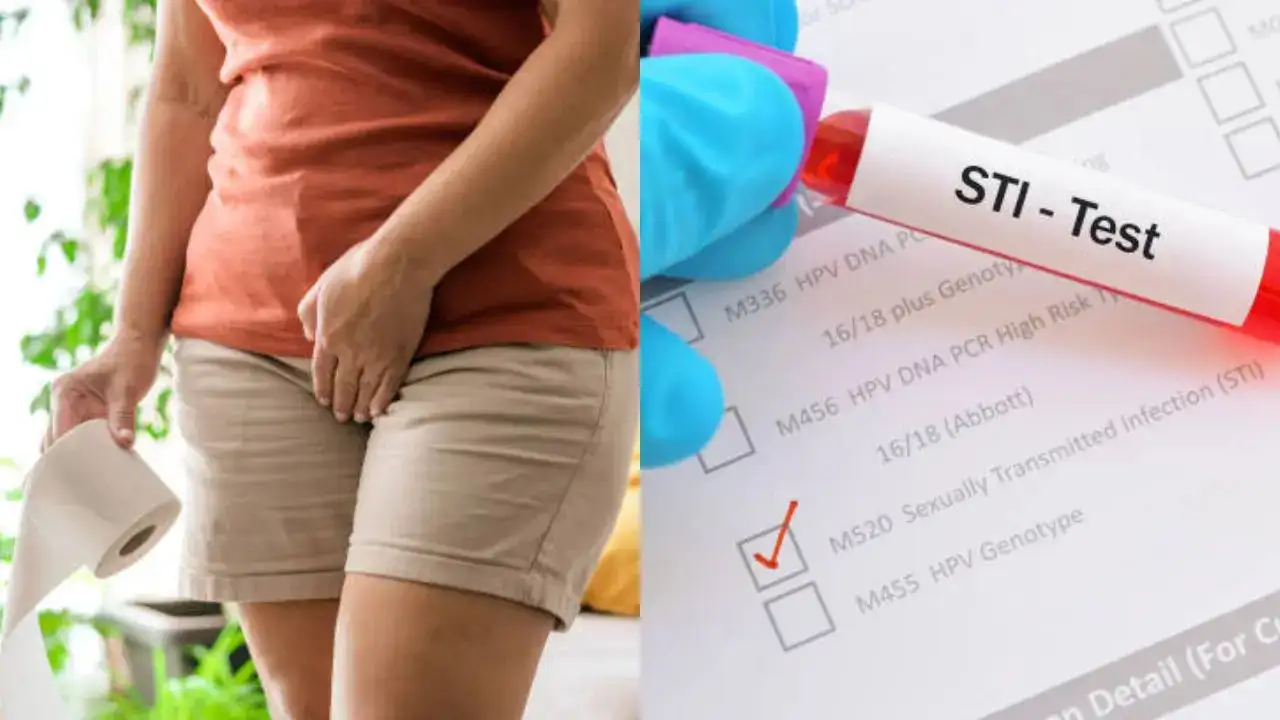Ashima Sharda Mahindra • 30 Mar 2025
From Tummy Pain To Spotting: Signs of Untreatable Sexually Transmitted Infections You Should Know

Gonorrhea, an STI caused by the bacterium Neisseria gonorrhoeae - often spreads through vaginal, oral, or anal sex
Experts have raised the alarm over common sexually transmitted infections, becoming concerned over a growing number of drug-resistant cases. The UK Health Security Agency, or UKHSA, warned the infection, passed on through unprotected sex, was becoming "increasingly resistant to antibiotics, increasing fears it could become untreatable.
According to doctors, gonorrhoea—an STI caused by the bacterium Neisseria gonorrhoeae - often spreads through vaginal, oral, or anal sex and can be treated with antibiotics. Overall, nearly 60,000 cases of gonorrhoea were diagnosed in the first nine months of 2024.
However, UKHSA said concerns were over a small number of cases that were not responding to ceftriaxone, an antibiotic used as the first line of treatment for gonorrhoea. For many patients with the condition, a dose of ceftriaxone may not be effective if the bacteria develop the ability to survive when exposed to the antibiotic.
"If left untreated, it can cause serious problems like pelvic inflammatory disease and infertility,” Dr. Katy Sinka, consultant epidemiologist and head of the STI section at UKHSA, told The Sun. Not everyone will get symptoms if they are infected with the nasty STI.
What is gonorrhoea?
Doctors say gonorrhoea does not cause symptoms, and you would not know you have it. Getting tested for gonorrhoea if you are sexually active and using condoms or dental dams during sex can reduce your risk of infection. If you believe you have gonorrhoea, do not wait to seek treatment, as untreated conditions can lead to long-term health complications.
Gonorrhoea is the second most common STI caused by bacteria — just behind chlamydia. Around a million new gonorrhoea infections occur in the United States every year. About half of these infections occur in people ages 15 to 24 years.
Signs and symptoms of gonorrhoea in women
At least 50 per cent of women do not experience any symptoms, making it easier to unknowingly pass the infection to your sexual partners. And so, doctors recommend getting tested for gonorrhoea if you are sexually active or if you believe you have sexual relations with someone who has gonorrhoea. A few symptoms of the condition include:
- Unusual vaginal discharge
- Pain in your lower abdomen or pelvis
- Pain during sexual intercourse
- Pain when you pee
- Bleeding between periods
Symptoms of gonorrhoea in men
Men are more likely to experience symptoms and a few signs of infection until several weeks after exposure, including:
- White, yellow, or green discharge from your penis
- Severe pain or burning when peeing
- Pain in testicles and swelling
Ways to prevent gonorrhoea
The only way to prevent gonorrhoea is to abstain from sex. For many people, the best way to reduce the risk of contracting and spreading gonorrhoea is to always use a condom or dental dam during sex. Other ways to stop the STI include:
- Don’t have sex with someone who has an active infection
- Don’t have sex with someone who has gonorrhoea symptoms
- Limit sexual partners and communicate openly about sexual activities.
- Get tested for gonorrhoea and have your partners get tested, too.
Get Latest News Live on Times Now along with Breaking News and Top Headlines from Health and around the world.